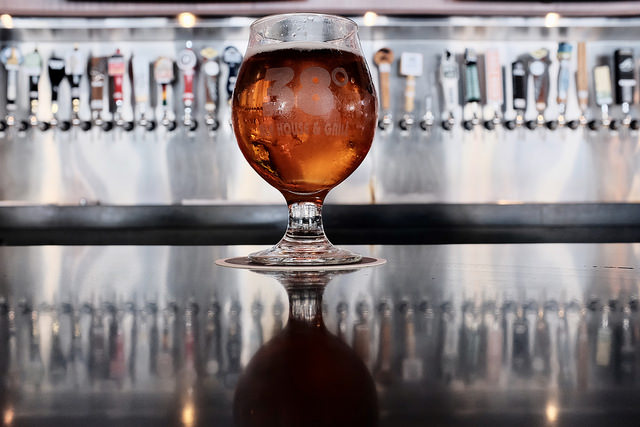The rise of craft beer in the United States gives us more options than ever at happy hour. Choices in beer are closely tied to social class, and the market often veers into the world of pointlessly gendered products. Classic work in sociology has long studied how people use different cultural tastes to signal social status, but where once very particular tastes showed membership in the upper class—like a preference for fine wine and classical music—a world with more options offers status to people who consume a little bit of everything.

But who gets to be an omnivore in the beer world? New research published in Social Currents by Helana Darwin shows how the new culture of craft beer still leans on old assumptions about gender and social status. In 2014, Darwin collected posts using gendered language from fifty beer blogs. She then visited four craft beer bars around New York City, surveying 93 patrons about the kinds of beer they would expect men and women to consume. Together, the results confirmed that customers tend to define “feminine” beer as light and fruity and “masculine” beer as strong, heavy, and darker.
Two interesting findings about what people do with these assumptions stand out. First, patrons admired women who drank masculine beer, but looked down on those who stuck to the feminine choices. Men, however, could have it both ways. Patrons described their choice to drink feminine beer as open-mindedness—the mark of a beer geek who could enjoy everything. Gender determined who got “credit” for having a broad range of taste.
Second, just like other exclusive markers of social status, the India Pale Ale held a hallowed place in craft brew culture to signify a select group of drinkers. Just like fancy wine, Darwin writes,
IPA constitutes an elite preference precisely because it is an acquired taste…inaccessible to those who lack the time, money, and desire to cultivate an appreciation for the taste.
Sociology can get a bad rap for being a buzzkill, and, if you’re going to partake, you should drink whatever you like. But this research provides an important look at how we build big assumptions about people into judgments about the smallest choices.
Evan Stewart is an assistant professor of sociology at University of Massachusetts Boston. You can follow his work at his website, on Twitter, or on BlueSky.
Comments 5
El_Sid — March 17, 2018
Surely both genders are getting credit for going outside the stereotype, the difference is that women are "penalised" for sticking with their "own" beers, whereas men are not.
But the research is fundamentally skewed by being restricted to beer bars which will filter out a majority of women - my observation would be that the big divide in women's drinking is between those who stick to wine/spirits, and those who will drink beer at least some of the time, not between those who drink/don't drink different types of beer. Personally, if she drinks pints, she's a keeper...
Cheryl J. Owens — September 2, 2021
Consumption of beer in the United States has doubled which is causing many problems among individuals. I am not against beer consumption but everything suits in a limit otherwise we have to lick the dust. Women are always criticized for beer consumption which is a very wrong concept in society. Well, here is the affiliate programs list that people should check for learning affiliate marketing.
greyasanna — November 14, 2021
Do you want to cancel or change the order? The first thing you should do is to make sure you have the account. It’s the first step blue apron vs gobble to do when you register on the platform. If you are a regular customer with the account, go to the necessary section to manage the subscription. Here you can either pause the subscription or cancel it. You will need to describe the reason why you decide to cancel the plan. And then you are ready to go.
Pre Made Dishes Adelaide - สถานีตำรวจภูธรทุ่งหลวง — December 21, 2021
[…] if you’re planning to factor in Factor into breakfast, lunch and dinner, too, you certainly https://thesocietypages.org/socimages/2018/01/18/bros-and-beer-snobs/comment-page-1/#comment-850197 can and not get bored together with your options. There are even dessert choices too — the […]
Larry Green — June 24, 2024
I'm so happy to see you here. merge fruit always provides you the best in entertainment.